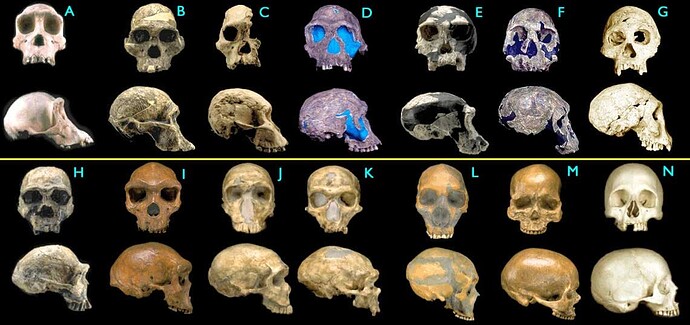It’s good to see BioLogos still burning down straw men. For someone to say AIG is fanning the flames of the culture war is precious. As we look at the culture falling into a place where every man’s thought is evil, where is BilLogo on the culture war? Are you for LGBTQXYZ? Is that limited to 1:1 relationships or is 1:many ok or many:many? You guys are scientists, numbers matter. Are you for abortion? Do you preach against pre-marital sex? This is going to be fun and I appreciate the opportunity. These straw men about young earthers being hayseeds that never took science is a hoot. I had to suffer through that monkeys to man diatribe from the sixth grade to post graduate, 50+ years! Over those years, we have unpacked the 3 assumptions required for radiometric dating which causes wild swings in dates from lab to lab, recorded catastrophic sediment layering on video, found soft tissue in dinosaurs, debunked every transitional human remain, shown rock deposits globally that could only occur in a global flood, demonstrated that “scientists” reconstructed entire skeletons from a single toe and told us what they had for their last dinner. You guys are good. I love the way the monkeys are posed in the museums too. The movie Planet of the Apes is a real future for earth in your worldview.
I am so glad I can pick up the Bible and read truth for what it is. I don’t struggle with why animals suffer or worse what is my purpose, because it is well spelled out by the creator of the universe and authenticated by Christ Himself.
You guys do make me wonder strange things. Was the first monkey to speak a man or woman? Did God plant the soul in the monkey man first? Or maybe the monkey woman got souled first. I mean, we cannot really know and we certainly can throw out Genesis as authority to anything other than a bedtime story. Are some human races more evolved than others? Darwin thought so, I wonder?
Science has proven women cannot have children as virgins. Was Mary really a virgin? People don’t come back from the dead, so Lazarus, well umm, and oh that Jesus, back from the dead, right. Have you not learned anything in biology.
Your position is not just squishy, it will prevent sanctification in the lives of so many. You will find your positions in total align more with atheists. That really should cause pause. And, only Bible believers can explain this to you, since you don’t believe the real gospel in the Bible and therefore cannot use if for much of a measuring stick. So how can you be expected to honestly evaluate your similarity with the secular world when you are tied so closely to it and and reject the one resource in large measure that separates and identifies the differences? Those 10 commandments, is that for real? God wrote it into stone?
Anyway, eternity is going to be the best place to discuss this. Now here are the odds that I am right and you are wrong. I believe the holy Scripture from Genesis to Revelation both from a revealed and scientific point of view. I don’t have to pack anything into it for meaning. The meaning lifts off the page. On the other hand, many pack in things that are miracles on any scale in order to fit this or that “science” into it, knowing the science will change and therefore change to a different miracle at some point. So, we will be able to assemble for this great debate in heaven as we have all eternity, so its not like you cannot move your calendar around. I will be turning to the creator of the universe and asking, “so, you say you created in 6 days, is that true?” I don’t expect the answer to be, “well you should have believed on that biology book because each day in Genesis was 10 million years. Now I know that word day means day in every other context of that specific word usage but com’om, haven’t you read Bill Nye? Don’t you trust him?” My brothers and sisters, this debate will be over before it starts. The good news is, I don’t think there will be crying in heaven, so don’t worry about bringing handkerchiefs.
